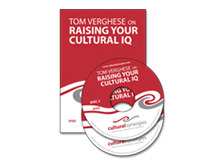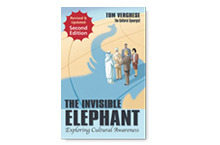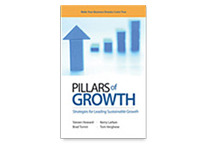 |
| THE CULTURAL SYNERGIST |
 Welcome back to The Cultural Synergist 2014. Over my Christmas holidays my family and I enjoyed a short break at a local beach resort situated along the Great Ocean Road in Victoria, Australia. As Victorian residents we know that the ocean around here can be quite treacherous at anytime. I decided that I would join my family in a surfing lesson. This is not something that I had done before or particularly thought about doing; but the opportunity arose to try something new and the enthusiasm from my family meant that it wasn�t really going to be an option to say no! Thankfully it was a wise choice that my family made for me � not only did I enjoy the experience but it also gave me a whole new respect for surfers! My one surfing lesson, which lasted all of two hours, gave me a new appreciation of anyone who could not only stand on the board but also the physical endurance that is required. A few evenings later, I was taking the dog for a walk along the beach when I noticed someone swimming away from the other swimmers. This person was pushing his fist in the air. I paused, looked again and interpreted this as a sign that the swimmer was in trouble. How did I know this � it was one of the first things that was covered in my surfing lesson, the signal to give if you need help. There were surfers nearby who I alerted, who bravely managed to go out on their boards and bring the swimmer back to the safety of the shore. Thankfully, after some medical attention this man was safe and well and understandably quite shaken by the experience. I hadn�t really thought too much about this before but I guess that anyone who has grown up by ocean beaches probably has a high level of knowledge and awareness of �reading� the ocean such as identifying rips and currents. This awareness is probably so entrenched that people don�t always realise when they are assessing the water. I can connect this to cultural awareness. If you don�t have the cultural knowledge of a particular situation it passes you by. You don�t know what you don�t know. Your unawareness and inexperience means that you don�t always know what you could be missing out on, or how you could be misinterpreting or even failing to read cultural signals. We constantly need to put ourselves in new situations in order to have fresh perspectives and grow as individuals. In the context of culture, I urge you to expose yourself to new foods, watch movies in languages other than you own and read overseas newspapers and magazines; or within your workplace engage with people who come from cultures that are different to your own. You will be surprised at not only the enjoyment that is to be gained but also the changes to your thinking and perspectives that will occur. Once your �cultural antennas� are up you will be sensitive to new experiences and knowledge that you had no idea previously existed�..you may even take up surfing! If you would like to read or follow our Cultural Intelligence Blog go to:
http://culturalsynergies.wordpress.com To read our latest discussion paper - The Business Case for Cultural Intelligence go to: http://www.culturalsynergies.com/images/stories/pdf_article/cq%20paperv3.pdf Best Wishes Tom Verghese Send to Friend |
||||
| New Year and New Experiences |
||||
 |
||||
|
This is a book that I read very quickly - Pink�s persuasive theory on what motivates us � in work, school and our personal lives, is a theory that had me captivated. He demonstrates that there is a mismatch between the practices employed by organisations in terms of their human capital and what really works. 1. Automony � this component consists of: Time � when the job will be done 2. Mastery � the provision of tasks that allow individuals to extend themselves and develop their skills further. There is a need to foster environments that support learning and development. 3. Purpose � communicate the purpose and vision well. People are more engaged when they have a clear vision and good understanding of their purpose. Equal value on purpose maximisation, as there is on profit maximisation, is also a key component to purpose. Using words such as �us� and �we� will help to inspire greater purpose. |
||||||
RECOMMENDED BOOK: Drive: The Surprising Truth About What Motivates Us by Daniel Pink 2009. |
||||||
 |
||||||
|
|
RESOURCES 'Raising Your Cultural IQ - DVD and CD 'Raising Your Cultural IQ' explores the issues around culture, the challenges that culture can pose and provides some great strategies on how to leverage on cultural differences and similarities. 'The Invisible Elephant - Exploring Cultural Awareness' Book testimonial by Asma Ghabshi Visit our store here
|
|
 |
||
 |
||
 |
||
 |
|